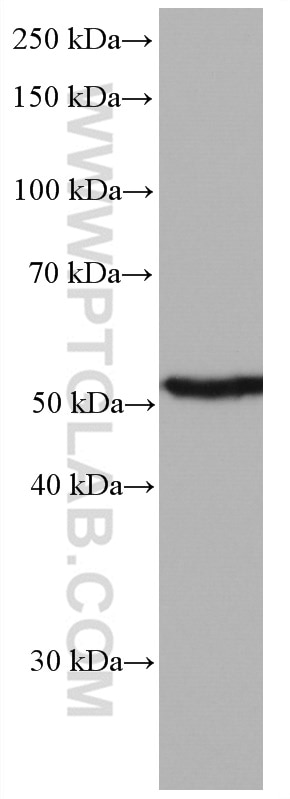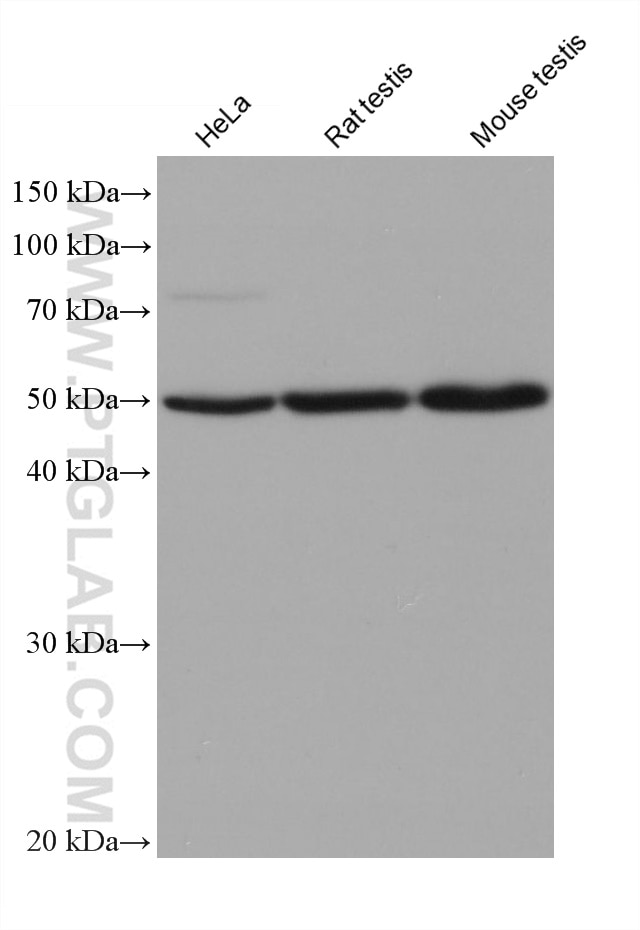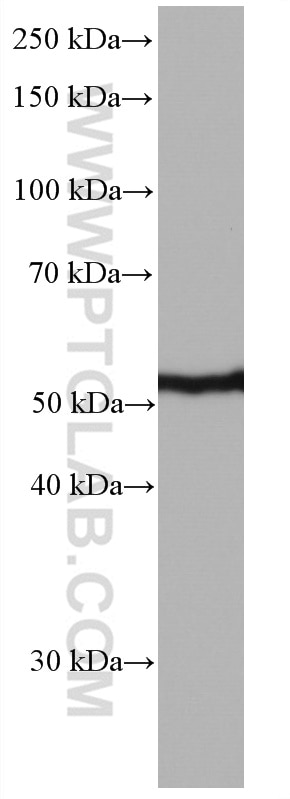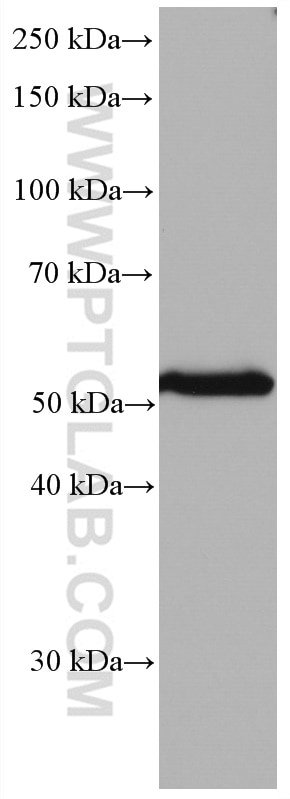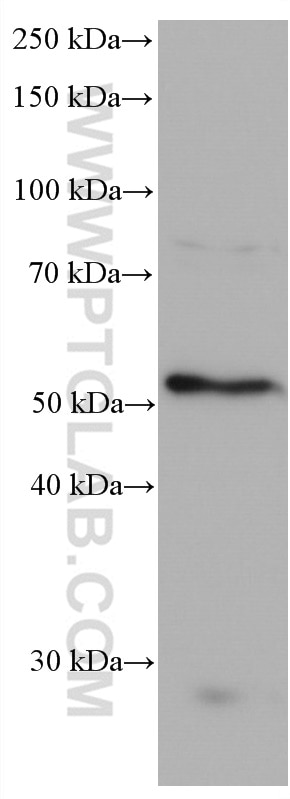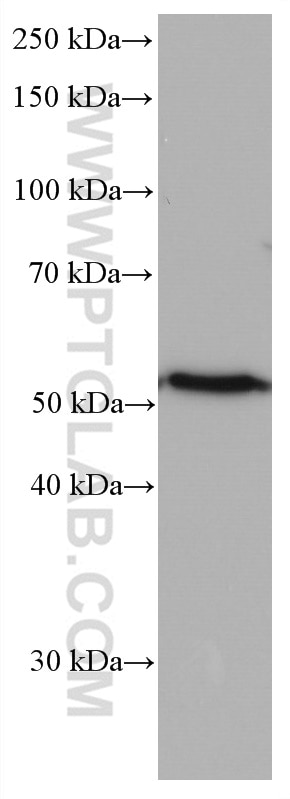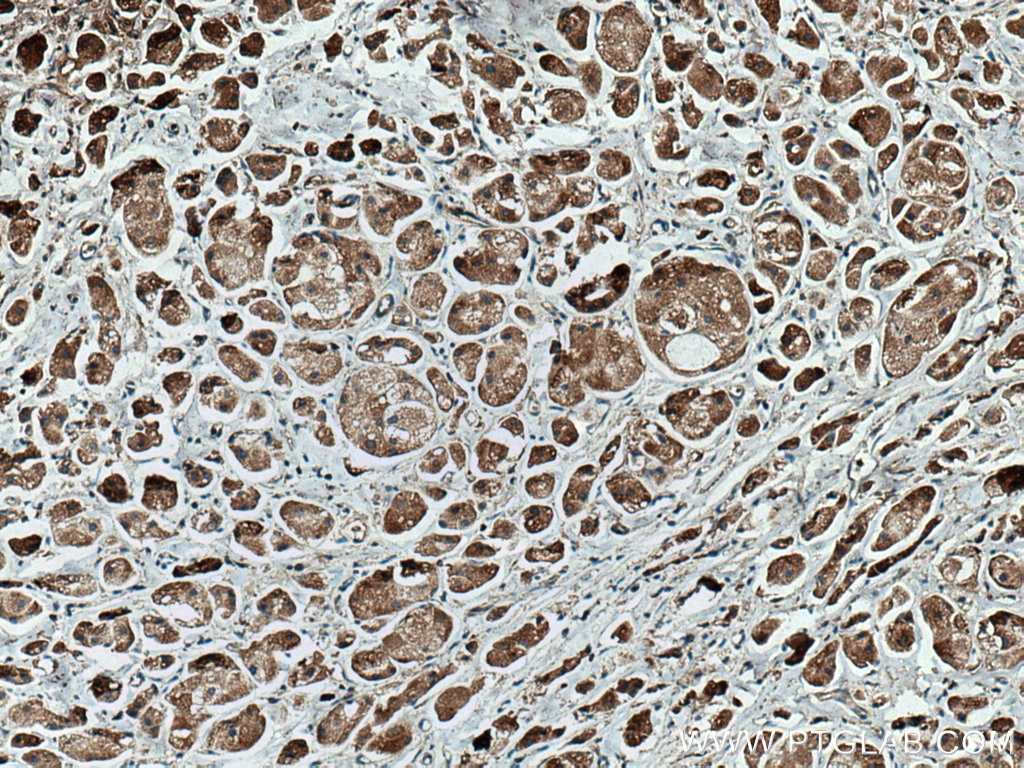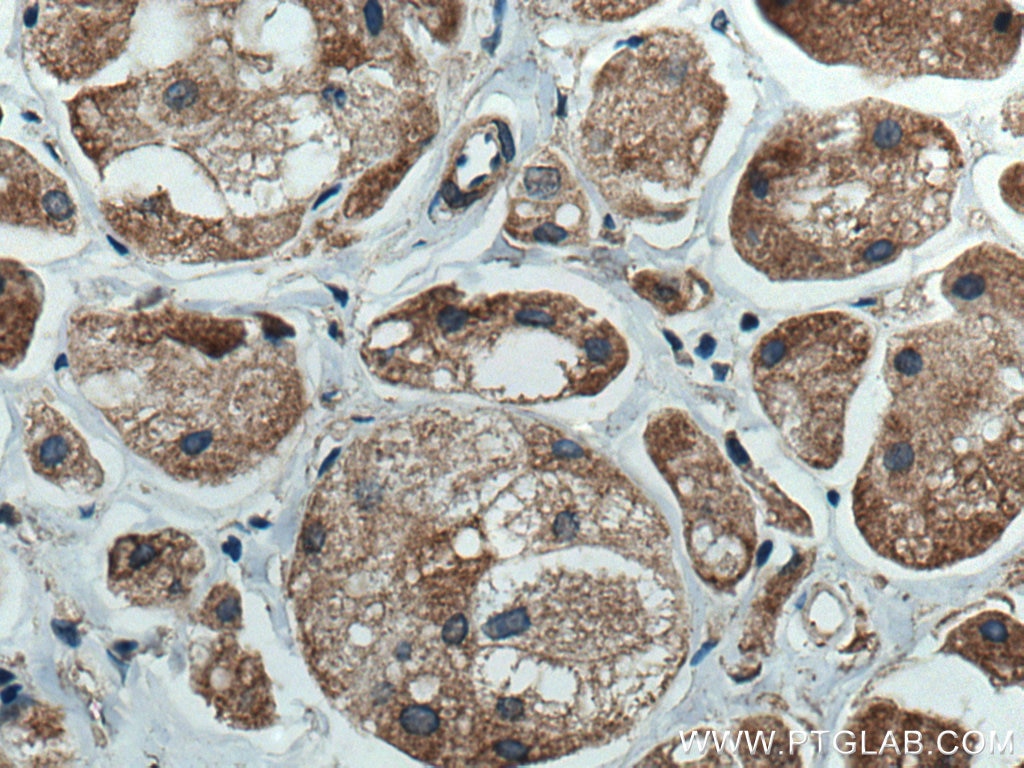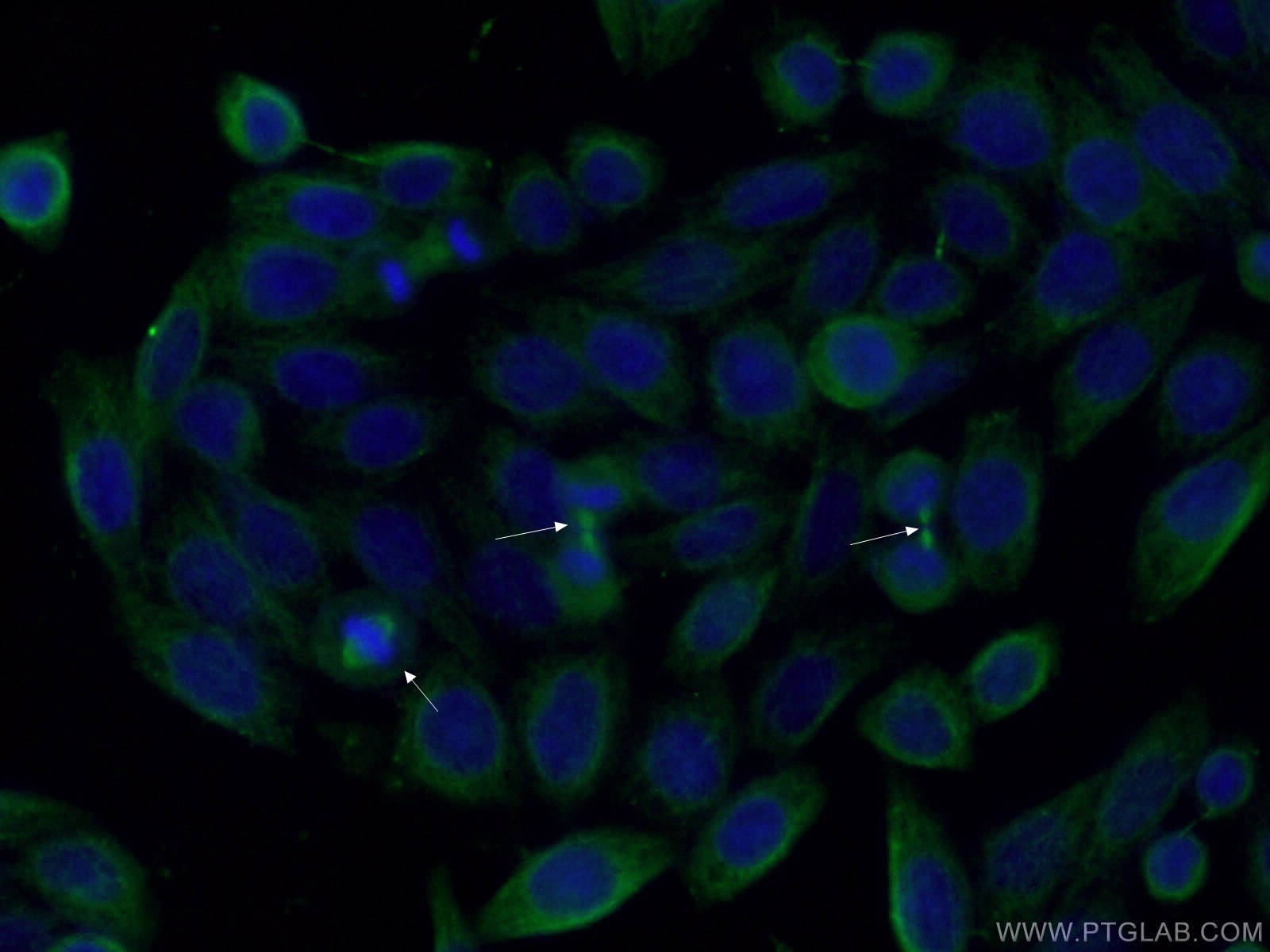- Phare
- Validé par KD/KO
Anticorps Monoclonal anti-AURKA
AURKA Monoclonal Antibody for IF, IHC, WB, ELISA
Hôte / Isotype
Mouse / IgG3
Réactivité testée
Humain, rat, souris
Applications
WB, IHC, IF, ELISA
Conjugaison
Non conjugué
CloneNo.
1F4B10
N° de cat : 66757-1-Ig
Synonymes
Galerie de données de validation
Applications testées
| Résultats positifs en WB | tissu testiculaire humain, cellules HeLa, cellules NCCIT, tissu testiculaire de rat, tissu testiculaire de souris |
| Résultats positifs en IHC | tissu de cancer du sein humain, il est suggéré de démasquer l'antigène avec un tampon de TE buffer pH 9.0; (*) À défaut, 'le démasquage de l'antigène peut être 'effectué avec un tampon citrate pH 6,0. |
| Résultats positifs en IF | cellules HeLa, |
Dilution recommandée
| Application | Dilution |
|---|---|
| Western Blot (WB) | WB : 1:1000-1:6000 |
| Immunohistochimie (IHC) | IHC : 1:300-1:1200 |
| Immunofluorescence (IF) | IF : 1:50-1:500 |
| It is recommended that this reagent should be titrated in each testing system to obtain optimal results. | |
| Sample-dependent, check data in validation data gallery | |
Applications publiées
| KD/KO | See 1 publications below |
| WB | See 9 publications below |
| IHC | See 1 publications below |
Informations sur le produit
66757-1-Ig cible AURKA dans les applications de WB, IHC, IF, ELISA et montre une réactivité avec des échantillons Humain, rat, souris
| Réactivité | Humain, rat, souris |
| Réactivité citée | Humain, souris |
| Hôte / Isotype | Mouse / IgG3 |
| Clonalité | Monoclonal |
| Type | Anticorps |
| Immunogène | AURKA Protéine recombinante Ag20096 |
| Nom complet | aurora kinase A |
| Masse moléculaire calculée | 46 kDa |
| Poids moléculaire observé | 46-52 kDa |
| Numéro d’acquisition GenBank | BC002499 |
| Symbole du gène | AURKA |
| Identification du gène (NCBI) | 6790 |
| Conjugaison | Non conjugué |
| Forme | Liquide |
| Méthode de purification | Purification par protéine A |
| Tampon de stockage | PBS avec azoture de sodium à 0,02 % et glycérol à 50 % pH 7,3 |
| Conditions de stockage | Stocker à -20°C. Stable pendant un an après l'expédition. L'aliquotage n'est pas nécessaire pour le stockage à -20oC Les 20ul contiennent 0,1% de BSA. |
Informations générales
AURKA(Aurora kinase A), also named as STK6, STK15 or AIK, belongs to the Ser/Thr protein kinase family. This protein may play a role in cell cycle regulation during anaphase and/or telophase by being involved in microtubule formation and/or stabilization. Some recent evidence revealed that AURKA may also be implicated in tumor development and progression. AURKA is expressed highly in testis and various proliferating cells, migrating as a 46 kDa protein in SDS PAGE.Nuclear staining for AURKA is weak or nonexistent in normal tissue but strong in tumor tissue(PMID:19107951).
Protocole
| Product Specific Protocols | |
|---|---|
| WB protocol for AURKA antibody 66757-1-Ig | Download protocol |
| IHC protocol for AURKA antibody 66757-1-Ig | Download protocol |
| IF protocol for AURKA antibody 66757-1-Ig | Download protocol |
| Standard Protocols | |
|---|---|
| Click here to view our Standard Protocols |
Publications
| Species | Application | Title |
|---|---|---|
Front Oncol PUF60/AURKA Axis Contributes to Tumor Progression and Malignant Phenotypes in Bladder Cancer. | ||
Front Oncol Integrated Analysis of Transcriptome Data Revealed AURKA and KIF20A as Critical Genes in Medulloblastoma Progression. | ||
Front Oncol Proteomics and phosphoproteomics of chordoma biopsies reveal alterations in multiple pathways and aberrant kinases activities
| ||
Biochem Pharmacol Palmatine induces G2/M phase arrest and mitochondrial-associated pathway apoptosis in colon cancer cells by targeting AURKA. | ||
Carcinogenesis ARID3A promotes the development of colorectal cancer by upregulating AURKA. | ||
Biochim Biophys Acta Mol Basis Dis Blocking AURKA with MK-5108 attenuates renal fibrosis in chronic kidney disease. |
Avis
The reviews below have been submitted by verified Proteintech customers who received an incentive forproviding their feedback.
FH Sarah-Eve (Verified Customer) (06-02-2023) | Works well, WB dilution 1:2000
|
